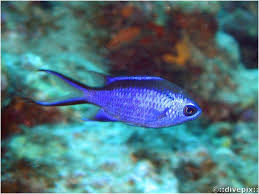Author: Mi La

Dragons in Theme Park Design in China
Dragons hold a central place in Chinese culture, symbolizing power, wisdom, and prosperity. As an iconic figure in Chinese mythology, the dragon has become a key design element in many theme parks across China. These parks use dragon-inspired architecture, attractions, and storytelling to create immersive experiences for visitors, blending traditional folklore with modern entertainment. This…

Dragon-Related Tourism Festivals in China
China’s deep-rooted cultural heritage is rich with dragon symbolism, representing power, prosperity, and good fortune. Throughout the country, numerous festivals and events are dedicated to the dragon, attracting both local and international tourists. These festivals combine ancient traditions, performances, and modern entertainment, offering an immersive experience into China’s legendary dragon culture. This article explores the…

Dragons in Sculpture Art at Tourist Destinations in China
Dragons have long been an essential part of Chinese mythology, history, and culture, symbolizing power, wisdom, protection, and prosperity. Across China, magnificent dragon sculptures are found in temples, palaces, gardens, and historical sites, serving as artistic masterpieces and significant cultural symbols. These dragon sculptures attract tourists, historians, and art enthusiasts who wish to explore their…

The Most Famous Dragon Museums in China
Dragons have been an integral part of Chinese culture, mythology, and history for thousands of years. Representing power, wisdom, and good fortune, the dragon (龙, Lóng) is revered in many aspects of Chinese society, from imperial symbolism to folklore and religious beliefs. In modern times, museums dedicated to dragons serve as a bridge between ancient…

Famous Tourist Destinations in China Associated with Dragons
China, a land rich in history and mythology, has a deep-rooted connection with the dragon (龙, Lóng)—a powerful symbol of strength, wisdom, and prosperity. Throughout the country, many famous tourist destinations are named after or inspired by dragons, reflecting their spiritual, cultural, and historical significance. From majestic mountains and sacred temples to vibrant festivals and…

How Dragons Are Used in Traditional Chinese Pastry Art
The Role of Dragons in Chinese Pastry Culture In Chinese culture, the dragon (龙, Lóng) is a symbol of power, good fortune, and imperial status. This mythical creature has been a source of inspiration in many aspects of Chinese life, including gastronomy and pastry-making. Traditional Chinese pastries, known for their artistry and symbolism, often feature…

The Presence of Dragons in Chinese Culinary Gift Culture
The Symbolism of Dragons in Chinese Gift-Giving In Chinese culture, the dragon (龙, Lóng) represents power, prosperity, and good fortune. Unlike in Western myths, where dragons are often portrayed as fearsome creatures, the Chinese dragon is a benevolent, celestial being that brings luck, strength, and harmony. Because of its deep cultural significance, the dragon is…

The Symbolism of Dragons in High-End Chinese Restaurants
The Prestige of the Dragon in Chinese Culture The dragon (龙, Lóng) has been an enduring symbol of power, prosperity, and divine authority in Chinese culture for thousands of years. Unlike the malevolent dragons of Western mythology, the Chinese dragon is a benevolent and auspicious creature, believed to bring good fortune, protection, and success. In…

Dragons in Taoist Vegetarian Cuisine
The Significance of Dragons in Taoist Culinary Philosophy In Taoism (道教, Dàojiào), the dragon (龙, Lóng) is one of the most revered symbols, representing universal balance, spiritual enlightenment, and the flow of Qi (气, life force). Unlike the fearsome dragons of Western mythology, the Chinese dragon is a benevolent and celestial being, associated with water,…

The Image of Dragons in Traditional Chinese Desserts
Dragons in Chinese Culinary Culture The dragon (龙, Lóng) has long been a sacred and auspicious symbol in Chinese culture, representing power, prosperity, and divine protection. While it is often associated with imperial authority, mythology, and festivals, its influence extends deeply into Chinese culinary traditions, including the realm of traditional sweets and desserts. In ancient…









